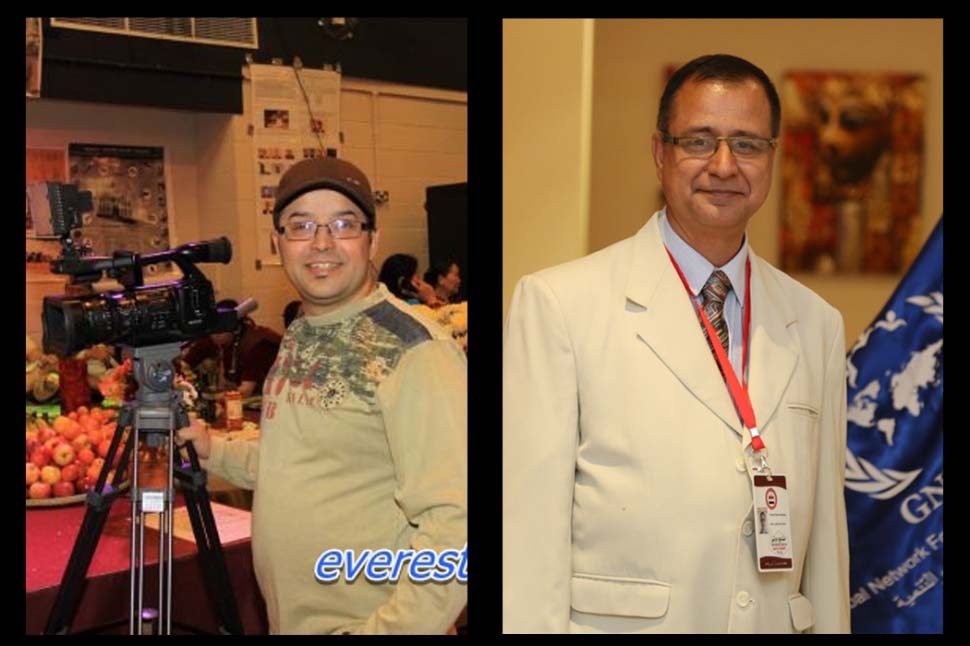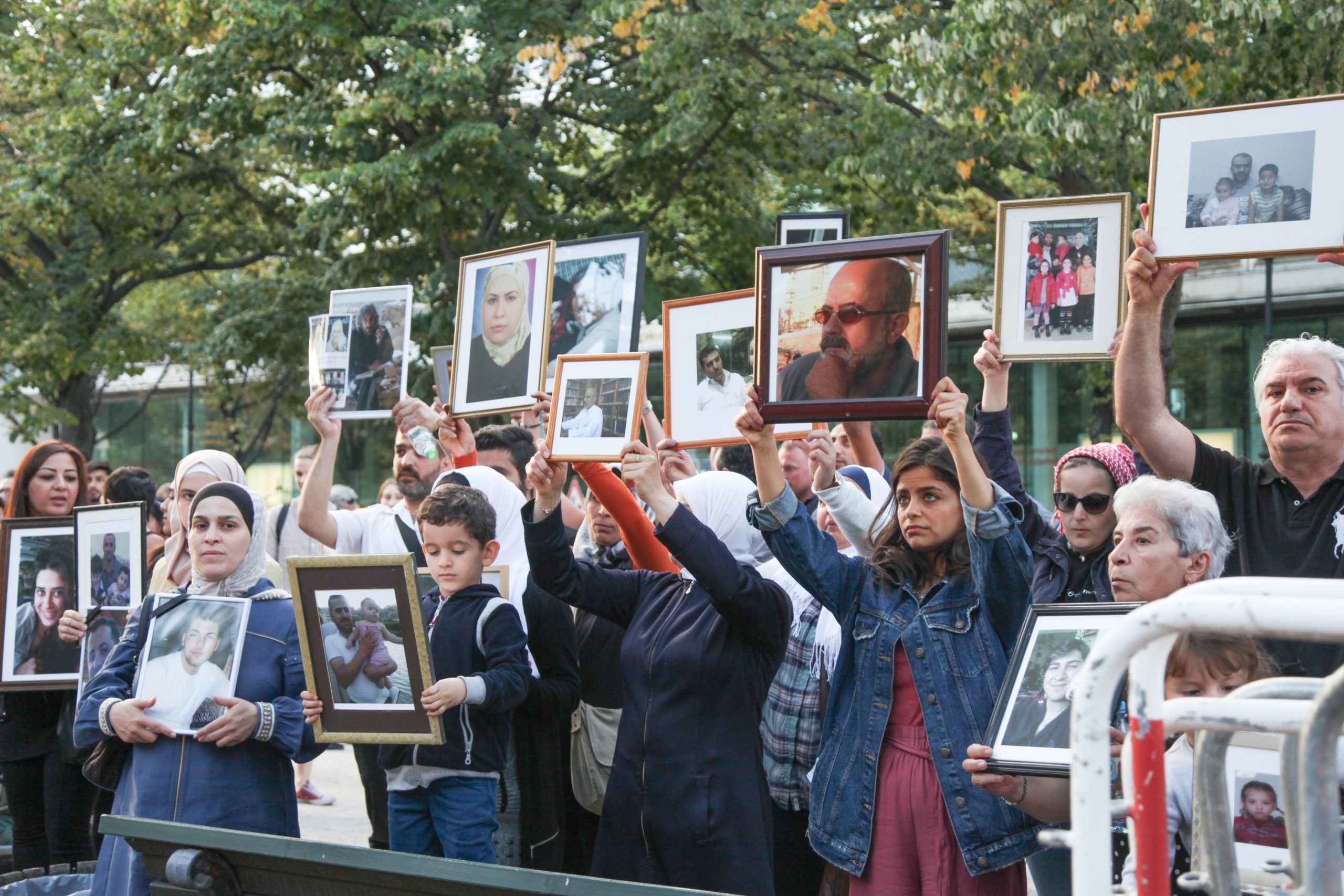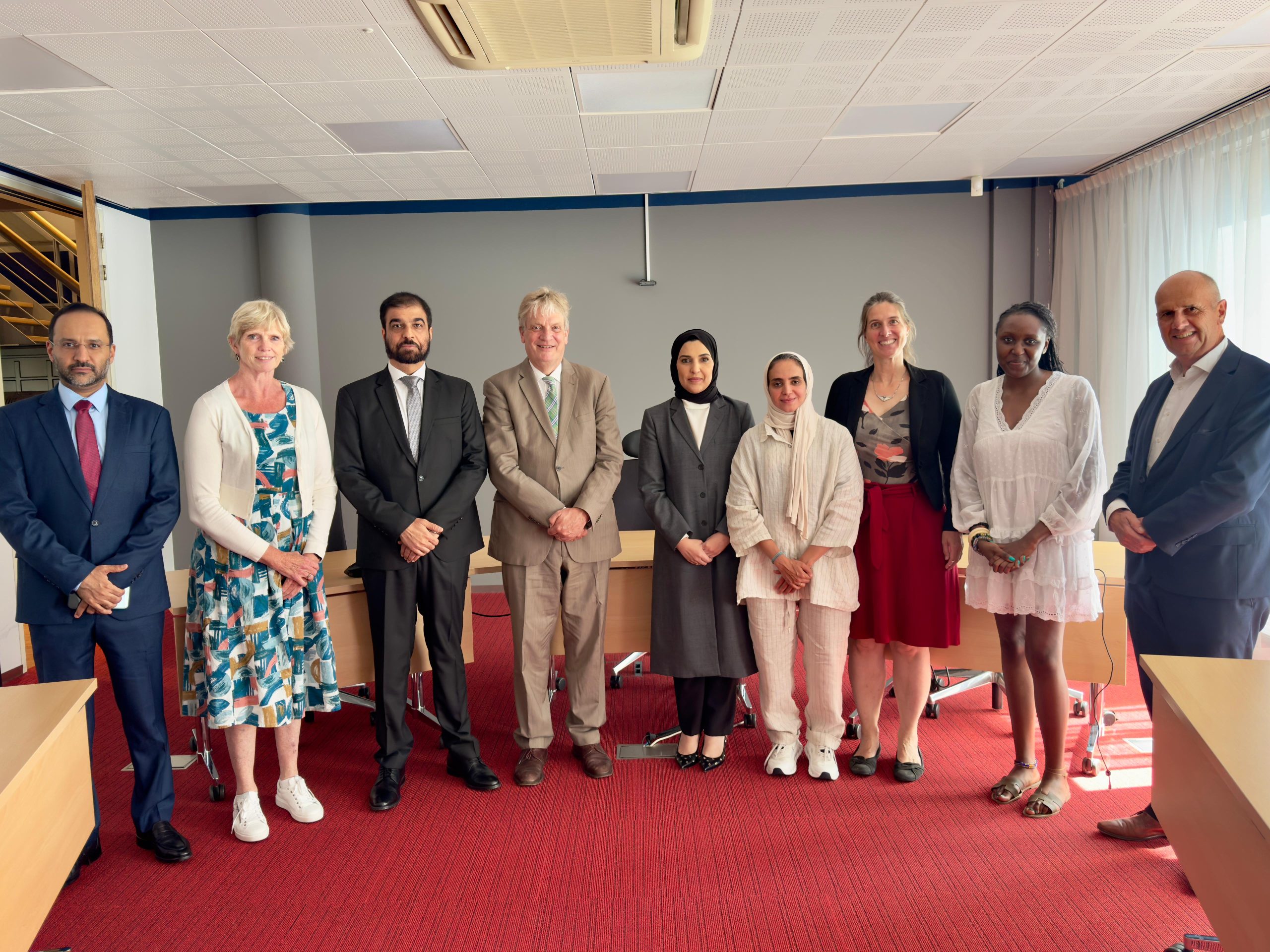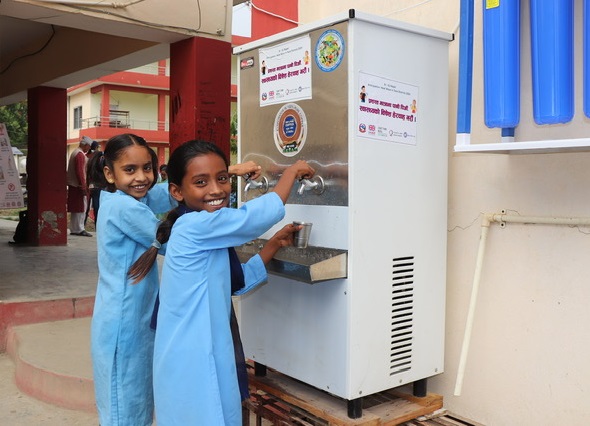
After making international headlines for being inexplicably detained in Qatar earlier this month, two charity workers have returned to their homes in the UK.
But Krishna Upadhyaya has said neither he nor his colleague Ghimire Gundev quite understand why they were jailed here in the first place.
In an interview with Doha News, the 51-year-old of Nepali descent said he spent nine days in solitary confinement in Qatar after being taken into custody by police officers at the airport.
He and Gundev then spent another week waiting to be cleared by authorities before leaving the country on Friday.
The two lost contact with their family members and employer, the Norway-based Global Network for Rights and Development, on Aug. 31.
Days after GNRD reported them missing, authorities confirmed they had been detained for “violating the provisions of the laws of the State of Qatar.” But the men were released two days later.
What happened
Upadhyaya said he first noticed he was being followed by police officers in Qatar a day or two into his stay here in late August.
He said he observed them when he was about to have dinner on a late August evening at the Grand Hyatt Doha hotel with several friends from the Nepali embassy here.
The veteran British human rights worker had been staying in Qatar with Gundev to conduct interviews with Nepali expats as part of a larger research project.
With his work complete, Upadhyaya headed to the Museum of Islamic Art the next day, ahead of his flight home.
Again, he said he was monitored by men he took to be plainclothes police officers, this time in an unmarked vehicle that was keeping its distance. By the time he reached the museum, he said he was being followed by three vehicles.
“That’s a bit weird for (someone) who has done human rights work for 23 years,” he told Doha News.
At 7pm that night, he left the hotel for the airport – and was this time followed by two vehicles, he said.
Upadhyaya said he checked in for his KLM flight without issue, but several police officers approached him before he reached the immigration counter and escorted him to a holding room inside the airport, taking his cell phone and then his camera.
The missed flight home marked the beginning of a nine-day detention in solitary confinement and a legal ordeal that ended early Friday morning with a flight from Doha to the UK, some three weeks after arriving in Qatar.
‘I was not expecting this’
One of the questions surrounding the arrest and detention of Upadhyaya and Gundev is why the two men were targeted while visiting Qatar – a country that’s regularly visited by human rights activists and foreign journalists without incident.
“I don’t know,” Upadhyaya said when asked why he and his colleague were singled out. “I was not expecting this.” This was the first time he had been arrested, he added.
Some have suggested the men were targeted because of their employer. GNRD appears to have ties to the UAE, which is involved in a diplomatic dispute with Qatar.
One of GNRD’s primary sponsors is a UAE consulting company run by a man with the same name as GNRD’s president. There is no online trace of the other firms that GNRD lists as corporate backers on its website.
But a spokesperson for the Scandinavian organization previously told Doha News that it does not receive any financial support from the UAE government.
And Upadhyaya said the only question Qatar interrogators asked him about his employer was an inquiry about the source of its funding. He said he didn’t know, as he had only joined GNRD in June. He said he was not asked any questions about the UAE.
Instead, he said he was quizzed on why he was choosing to focus his research on Nepali workers in Qatar, as opposed to migrant workers in other countries.
“They were asking why I was trying to paint a negative picture of Qatar,” he said.
Upadhyaya said he denied that suggestion and was able to demonstrate that he had studied foreign labor issues in many nations over the course of his career, something he said he believed helped secure his release.
He also told the Independent that he and Gundev had to give the passwords to their personal and work email accounts to investigators – though the two had sent the results of their research to others the night before their arrest.
He continued:
“Even though we sent our material out we were careful to leave everything on the computer to be transparent about everything we were doing. I knew they would confiscate and search our equipment so we even left it in a clearly-labelled folder on the laptop…
The interrogators were civil but I was questioned at length for three days. Then we were left in this very bare cell for another six or seven days. I had nothing. Nothing to read. It is at that point that you can go a bit crazy but I tried my best to be philosophical – I meditated and looked for some freedom in my soul.”
Upadhyaya said he was eventually brought before a prosecutor, where he was charged with improperly entering Qatar on a tourist visa as well as possessing illegal documents – which he assumes were the photos and videos taken on the trip.
The two men were warned “not to do this again,” released from custody and told that they could leave the country once their case was closed.
While that was initially expected to take two days, the process dragged on for more than a week before the British embassy intervened and phoned Upadhyaya last Thursday, telling him he could return home.
Back in London
After taking some time off to recoup, Upadhyaya said he plans to complete his report in the next month or so.
His focus is on what he calls the “labor supply chain.” Prior to coming to Doha, he spent time in his home country of Nepal to gain a better understanding of the recruitment process in that nation, exploring issues such as who is coming to work in Qatar, how they are raising money to pay recruitment fees and what contracts they are signing before moving abroad.
Cracking down on manpower agencies that flout local laws by, for example, demanding payments from workers is one part of the Qatar government’s efforts to curb the abuse of migrant laborers.
More broadly, authorities have announced plans to reform the country’s kafala sponsorship by making it easier for expats to change jobs and leave the country, as well as increasing fines for employers who confiscate their workers’ passports, among other measures.
Part of Upadhyaya’s project was to see if these changes had improved the living and working conditions of migrants – something he planned to measure through responses to a questionnaire.
“I wasn’t there just to take pictures and publish them in newspaper,” he said.
He said he has no misgivings about making the trip to Qatar and holds no ill will toward the security forces that held him captive.
“I’m not angry with the people who arrested me. I was doing my job, and they were doing their job. It’s not personal … and I was not treated in a rough way.
I do not regret my arrest there because it (came in pursuit of) a human rights cause … We need to solve the problem of our time.”
Thoughts?







